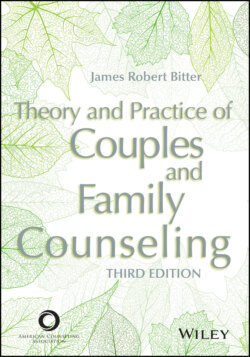Читать книгу Theory and Practice of Couples and Family Counseling - James Robert Bitter - Страница 89
A Consideration of Virtue
ОглавлениеWithin Western cultures, most discussions of virtue have yielded relatively common themes. Although Aristotle (350 B.C.E./1985) chose happiness as the highest good, it was never to be achieved in isolation. Indeed, happiness was the result of virtuous actions that were conducted with moderation: bravery (or courage); temperance; generosity; mildness and friendliness; truthfulness; wit; justice and fairness; consideration and considerateness; and rational thought, intelligence, and even wisdom. To this list, Cicero (44 B.C.E./1991) added orderliness, goodwill, honor, faithfulness, and service. We find many of these same themes in the thoughts of Plato (380 B.C.E./1992) and most subsequent philosophers in Western societies. These Western traits were formulated for and assigned to individuals who sought to live a good life in relation to others of similar status and condition.
As Aristotle (350 B.C.E./1985) noted, there are certain preconditions to such virtuous action, and again each of these preconditions must be held by the individual or it invalidates virtue. Included in the preconditions are free will and voluntary action, the capacity for rational decision-making, the intention of achieving rational ends, and choice (or the power to enact either good or evil). These individual conditions have, for the most part, been enshrined in each of the codes of ethics that address professional practice in the helping professions. But what does this mean for cultures and societies in which the individual is not the most important character in the determination of moral action, as is true for many Asian countries? And what does it mean for the systemic therapies that approach the work relationally rather than individually? Do systemic therapy masters have anything to add to a conversation about individual virtue or goodness and a good society (or system)?
